The state licensed nursing assistant training being provided in Brunswick, Georgia that is open for enrollment as of the making of this post are all listed below.
ADL Training and Testing
2919 Altama Ave.,
Brunswick, GA 31520
(912) 265-9355
http://adltraining-cna.com/
American Red Cross Southeastern Coastal GA Chapter
207 Rose Drive,
Brunswick, GA 31520
(912) 265-1695
http://www.redcross.org
Brunswick Job Corps Center
4401 Glynco Pkwy.,
Brunswick, GA 31525
(912) 264-8843
http://brunswick.jobcorps.gov
Golden Isles Career Academy
Glynco Parkway,
Brunswick, GA 31520
(912) 280-4335
http://www.gica.us/
Sears Manor
3311 Lee Street,
Brunswick, GA 31520
(912) 264-1857
http://www.searsmanorcoastalnursingrehab.com/
The completion of a training program is one of the most important requirements that must be met to become a CNA. All students who are enrolled in a certified training program must complete the classroom, clinical, and lab rotations. A 100% rating is required in the lab before the student is allowed to proceed to the clinical rotations. While the students are in the clinical area, they will be placed under the care of a member of the healthcare team like a registered nurse. The training programs in this state can be completed within 2-6 months.
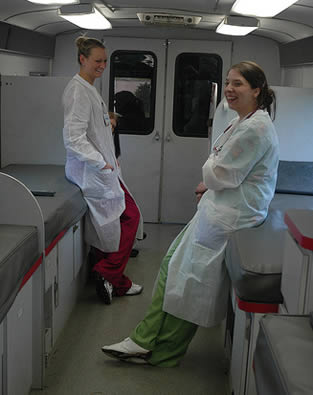 After the completion of the training, the next step is to apply for the license exams. To apply, the applicant will need to send in the competed application form, transcript, high school diploma, fingerprint cards, ID photo, and the payments for the different fees. All applicants must be able to pass the background checks to proceed and take the exams.
After the completion of the training, the next step is to apply for the license exams. To apply, the applicant will need to send in the competed application form, transcript, high school diploma, fingerprint cards, ID photo, and the payments for the different fees. All applicants must be able to pass the background checks to proceed and take the exams.
After passing the exams, the candidate’s name will then be entered in the state’s Nurse Aide Registry. He or she must maintain this status to be able to apply for long-term work in different healthcare settings. If you are already working as a nursing assistant in a nursing facility, you are required to complete a training program and pass the license exam within 4 months from the start of your work.
Brunswick is the county seat of Glynn County. It is located in southeastern Georgia. It is also about 30 miles north from Florida, and a few miles south of South Carolina. According to the census of 2010, their total population was around 15,383 residents. Its total area is approximately 25.2 sq miles and has a population density of 934.5/sq mile.
The Southeast Georgia Health System is the main health provider for the city. Other health care facilities that you can find in the city include Intrepid USA Home Health Service, Gambro Health Care Brunswick, STD Test Express, Rose Health Care, Gateway Behavioral Health Services, Ental Health Center, Golden Isles Surgical Center, and many more. photo attribution: komunews
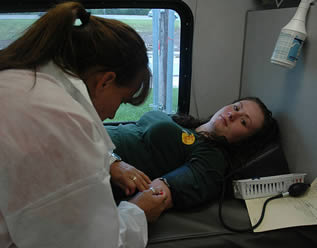 For a program to be certified, it must offer its students 85 hours of training, which includes no less than 24 hours of clinical duties. The clinical rotations will take place in either a hospital or a nursing home. While the student is in the clinical area, he or she will be taken care of by a RN or a LPN. A 100% rating is required in the lab before a student is allowed to go to the clinical area. After your classroom and clinical instruction is completed your course director can help you set a time to take the competency exams. Passing this two part exam is necessary to become certified. The tests are a written or oral component and a demonstration portion. By passing both parts you become eligible to be hired and are included on the state registry for a two year period.
For a program to be certified, it must offer its students 85 hours of training, which includes no less than 24 hours of clinical duties. The clinical rotations will take place in either a hospital or a nursing home. While the student is in the clinical area, he or she will be taken care of by a RN or a LPN. A 100% rating is required in the lab before a student is allowed to go to the clinical area. After your classroom and clinical instruction is completed your course director can help you set a time to take the competency exams. Passing this two part exam is necessary to become certified. The tests are a written or oral component and a demonstration portion. By passing both parts you become eligible to be hired and are included on the state registry for a two year period.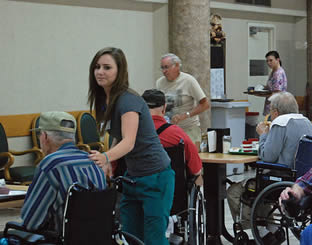 The license exams in this state are composed of two parts, a written/oral exam and a skills evaluation. In order to get your name entered in the state’s Nurse Aide Registry, you must pass all the exams. Every student is allowed to take the exams up to three times within one year. If you failed for the third time, then you will be required to undergo retraining before you can take it again.
The license exams in this state are composed of two parts, a written/oral exam and a skills evaluation. In order to get your name entered in the state’s Nurse Aide Registry, you must pass all the exams. Every student is allowed to take the exams up to three times within one year. If you failed for the third time, then you will be required to undergo retraining before you can take it again.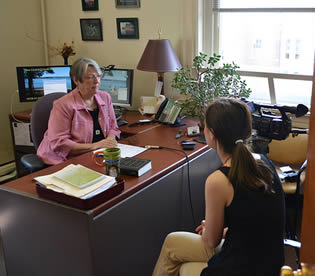 After the training, you can then apply for the CNA license exams. The most important task when applying is to be able to pass the background checks. These checks are done to protect the interest of the patients or residents. You will not be allowed to take the exams if you do not pass the background checks. Having records such as theft or abuse can have a great effect on your application.
After the training, you can then apply for the CNA license exams. The most important task when applying is to be able to pass the background checks. These checks are done to protect the interest of the patients or residents. You will not be allowed to take the exams if you do not pass the background checks. Having records such as theft or abuse can have a great effect on your application.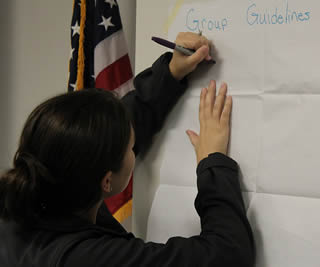 After finishing the training program, you can then move on to apply for the license exams. When applying, you are required to send in the completed application form and the necessary documents. These documents include proof of training, high school diploma, fingerprint cards for the background checks, passport size pictures, and the payment for the exam fees. You will also be subjected for TB testing and immunizations to make sure that you are not carrying any communicable disease.
After finishing the training program, you can then move on to apply for the license exams. When applying, you are required to send in the completed application form and the necessary documents. These documents include proof of training, high school diploma, fingerprint cards for the background checks, passport size pictures, and the payment for the exam fees. You will also be subjected for TB testing and immunizations to make sure that you are not carrying any communicable disease.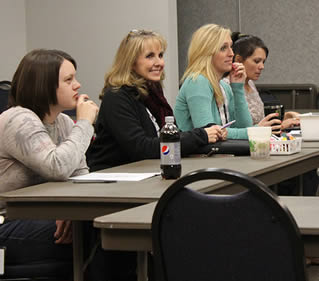 These programs can be found all over the state. They are offered by colleges, high schools, and nursing homes. For them to be certified they must offer their students a minimum of 85 hours of training which must include 24 hours of clinical duties. Depending on the program you enroll in, it will take an average of 2-6 months to complete the program.
These programs can be found all over the state. They are offered by colleges, high schools, and nursing homes. For them to be certified they must offer their students a minimum of 85 hours of training which must include 24 hours of clinical duties. Depending on the program you enroll in, it will take an average of 2-6 months to complete the program. Classes must offer at least 85 hours of training to be state approved. Of that amount 24 hours must be devoted to skills practice. During the skills portion of your instruction you will be using common practices and procedures used while on the job. Some of the common skills learned include: range of motion exercises, taking vitals (temperature, weight, heart rate, respiration), catheter monitoring & care, feeding, transporting, housekeeping, dressing, and infection/safety measures.
Classes must offer at least 85 hours of training to be state approved. Of that amount 24 hours must be devoted to skills practice. During the skills portion of your instruction you will be using common practices and procedures used while on the job. Some of the common skills learned include: range of motion exercises, taking vitals (temperature, weight, heart rate, respiration), catheter monitoring & care, feeding, transporting, housekeeping, dressing, and infection/safety measures. NATP programs are found across the state. Listed on this page are the programs that you can find in the area. Depending on the program’s curriculum, it will take you 2 to 6 months to complete your training. You can find these programs offered by colleges, private schools, and community training centers. They offer 85 hours of training, which already include 24 hours of clinical duties.
NATP programs are found across the state. Listed on this page are the programs that you can find in the area. Depending on the program’s curriculum, it will take you 2 to 6 months to complete your training. You can find these programs offered by colleges, private schools, and community training centers. They offer 85 hours of training, which already include 24 hours of clinical duties. The state does not require a high school diploma in order to enroll in a certification training program. You also need to renew or apply for recertification every 2 years as well as should have worked for at least 8 hours for pay as a nursing assistant during that period. Failure to comply would mean the termination of the certification and ineligibility to work. You may also need to retake CNA training and examination again in order to gain certification. CT Works One Stop Center offers financial aid to those who cannot afford to pay for their school tuition fees. There are also financial aids offered by community colleges and nursing facilities to those who are eligible and have met the requirements for such aide.
The state does not require a high school diploma in order to enroll in a certification training program. You also need to renew or apply for recertification every 2 years as well as should have worked for at least 8 hours for pay as a nursing assistant during that period. Failure to comply would mean the termination of the certification and ineligibility to work. You may also need to retake CNA training and examination again in order to gain certification. CT Works One Stop Center offers financial aid to those who cannot afford to pay for their school tuition fees. There are also financial aids offered by community colleges and nursing facilities to those who are eligible and have met the requirements for such aide. During your instruction the school facility must provide 75 clock hours in total length. This should include at the minimum 51 hours of coursework & lectures and 24 hours of clinical practice utilizing basic nurse aide skills. Some of the tasks you will practice include: measuring vital signs (such as blood pressure, pulse, respiration), CPR, Heimlich Maneuver, range of motion exercises, transporting residents, communicating with patients, catheter measurement and emptying, housekeeping, assisting with dressing, safety procedures, infection control, and nourishment.
During your instruction the school facility must provide 75 clock hours in total length. This should include at the minimum 51 hours of coursework & lectures and 24 hours of clinical practice utilizing basic nurse aide skills. Some of the tasks you will practice include: measuring vital signs (such as blood pressure, pulse, respiration), CPR, Heimlich Maneuver, range of motion exercises, transporting residents, communicating with patients, catheter measurement and emptying, housekeeping, assisting with dressing, safety procedures, infection control, and nourishment. Once you have finished your course instruction you are often referred to a place to take the exams from your school. However, if this isn’t the case you can contact the Nurse Aide Competency Evaluation Services locally at (512) 467-0615 or toll free at 1-800-444-5178. When you take the exam you will find it is given in two separate portions. These are a written multiple choice quiz, and a manual skills demonstration exam. Applicants must pass both parts in order to become registered nurse aides. Each person is allowed three attempts for each test to pass. Those who are successful are included on the registry and certified for 24 months. If you want to check your certification status on the registry you can call 1-800-452-3934 and enter your social security number when prompted.
Once you have finished your course instruction you are often referred to a place to take the exams from your school. However, if this isn’t the case you can contact the Nurse Aide Competency Evaluation Services locally at (512) 467-0615 or toll free at 1-800-444-5178. When you take the exam you will find it is given in two separate portions. These are a written multiple choice quiz, and a manual skills demonstration exam. Applicants must pass both parts in order to become registered nurse aides. Each person is allowed three attempts for each test to pass. Those who are successful are included on the registry and certified for 24 months. If you want to check your certification status on the registry you can call 1-800-452-3934 and enter your social security number when prompted.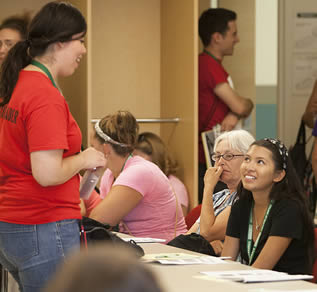 During your skills practice you will get to experience the common tasks typically used during the job. Some of the skills you will experience using include the following: range of motion exercises, taking vital signs, managing patient catheters, housekeeping, toileting, bathing, dressing, feeding, transporting patients, infection control procedures, and assisting to ambulate.
During your skills practice you will get to experience the common tasks typically used during the job. Some of the skills you will experience using include the following: range of motion exercises, taking vital signs, managing patient catheters, housekeeping, toileting, bathing, dressing, feeding, transporting patients, infection control procedures, and assisting to ambulate.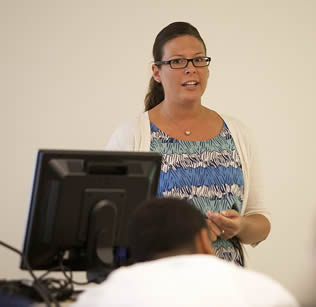 Normally nurse aide training in Texas is based on 51 hours of theoretical coursework & class lectures, and 24 hours of hands-on skills work. Some of the skills proficiencies you will learn are: checking & measuring vital signs (respiration, pulse and blood pressure), transporting patients, helping assist patients (toileting, dressing, bathing, feeding), performing range of motion exercises, caring for their catheters, infection control techniques, safety measures, housekeeping, and communication skills practice.
Normally nurse aide training in Texas is based on 51 hours of theoretical coursework & class lectures, and 24 hours of hands-on skills work. Some of the skills proficiencies you will learn are: checking & measuring vital signs (respiration, pulse and blood pressure), transporting patients, helping assist patients (toileting, dressing, bathing, feeding), performing range of motion exercises, caring for their catheters, infection control techniques, safety measures, housekeeping, and communication skills practice.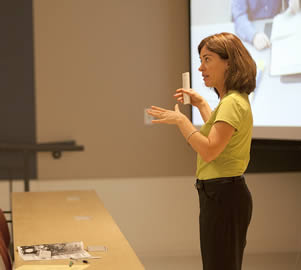 When you are finished with your course your school can help you find a testing location. I addition you can schedule a date to take the competency exam and find a testing facility by calling the Nurse Aide Competency Evaluation Services at 1-800-444-5178 or (512)467-0615.
When you are finished with your course your school can help you find a testing location. I addition you can schedule a date to take the competency exam and find a testing facility by calling the Nurse Aide Competency Evaluation Services at 1-800-444-5178 or (512)467-0615. The primary task of nurse aides in long term care facilities and hospitals are to help provide basic assistance to residents/patients under the supervision of nurses. Before you can become certified you must complete a training program that teaches you the skills you need on the job and pass the license exams. Classes provide theoretical instruction and hands-on practice in a nursing home like setting. During your skills training you will learn to help assist patients with: transportation, bed-making, nourishment, range of motion exercises, taking vital signs, toileting, catheter care and many more.
The primary task of nurse aides in long term care facilities and hospitals are to help provide basic assistance to residents/patients under the supervision of nurses. Before you can become certified you must complete a training program that teaches you the skills you need on the job and pass the license exams. Classes provide theoretical instruction and hands-on practice in a nursing home like setting. During your skills training you will learn to help assist patients with: transportation, bed-making, nourishment, range of motion exercises, taking vital signs, toileting, catheter care and many more. During your course training you will get classroom instruction that covers the fundamental theoretical information you need to know on the job, and you will receive hands-on skills practice in a health care setting. Generally after you complete the training portion of your requirements your school will help schedule your certification exam with Nurse Aide Competency Evaluation Services. To schedule a date to take the tests on your own you can call them directly at 1-800-444-5178 or locally at (512) 467-0615.
During your course training you will get classroom instruction that covers the fundamental theoretical information you need to know on the job, and you will receive hands-on skills practice in a health care setting. Generally after you complete the training portion of your requirements your school will help schedule your certification exam with Nurse Aide Competency Evaluation Services. To schedule a date to take the tests on your own you can call them directly at 1-800-444-5178 or locally at (512) 467-0615. Some of the skills you will be taught during instruction are: psychosocial family/patient needs, range of motion exercises, communication, measuring and recording vital signs (pulse, respiration, blood pressure), housekeeping, nourishment, safety procedures & practices, toileting, catheter care, patients rights, observation skills, and transporting patients.
Some of the skills you will be taught during instruction are: psychosocial family/patient needs, range of motion exercises, communication, measuring and recording vital signs (pulse, respiration, blood pressure), housekeeping, nourishment, safety procedures & practices, toileting, catheter care, patients rights, observation skills, and transporting patients. When you enroll in a program you’ll find that there are two primary components. These are classroom instruction and hands-on skills practice. Your classes will help you learn the fundamentals of being a nurse aide, and how to provide basic care for long-term care residents and health care patients. Your clinical skills training will be set in an environment similar to that found in a medical facility. You will get hands-on practice performing tasks like: measuring vital signs, ambulatory & range of motion exercises, housekeeping, catheter changing & recording output, safety procedures, infection control, assisting with residents needs, nourishment, and communication skills.
When you enroll in a program you’ll find that there are two primary components. These are classroom instruction and hands-on skills practice. Your classes will help you learn the fundamentals of being a nurse aide, and how to provide basic care for long-term care residents and health care patients. Your clinical skills training will be set in an environment similar to that found in a medical facility. You will get hands-on practice performing tasks like: measuring vital signs, ambulatory & range of motion exercises, housekeeping, catheter changing & recording output, safety procedures, infection control, assisting with residents needs, nourishment, and communication skills.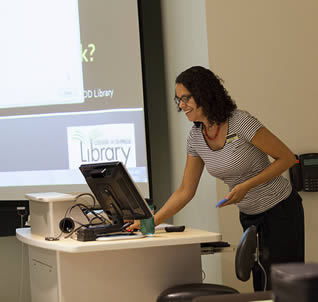 When you take your class you will have your instruction split between classroom work & lectures and skills practice in a medical setting. School programs are required to be licensed by the Department of Aging and Disability Services and provide a minimum amount of hourly instruction. currently you must go through at least 51 hours of theoretical coursework and 24 hours of clinical practice.
When you take your class you will have your instruction split between classroom work & lectures and skills practice in a medical setting. School programs are required to be licensed by the Department of Aging and Disability Services and provide a minimum amount of hourly instruction. currently you must go through at least 51 hours of theoretical coursework and 24 hours of clinical practice.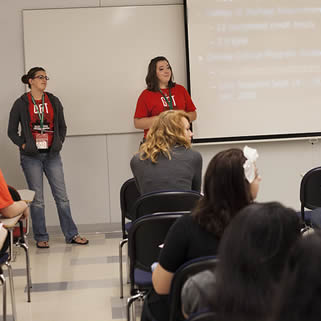 After you complete a course you will want to schedule a time to take the exam. To find a location nearby you can contact the Nurse Aide Competency Evaluation Services (NACES) by calling their phone number at 1-800-444-5178 or (512) 467-0615. During the exam you will need to pass a written part containing 70 multiple choice questions and a skills test where you will need to demonstrate 5 random nursing related procedures and tasks. You are allowed three opportunities to pass both portions to be placed on the registry or need to retake the training requirement.
After you complete a course you will want to schedule a time to take the exam. To find a location nearby you can contact the Nurse Aide Competency Evaluation Services (NACES) by calling their phone number at 1-800-444-5178 or (512) 467-0615. During the exam you will need to pass a written part containing 70 multiple choice questions and a skills test where you will need to demonstrate 5 random nursing related procedures and tasks. You are allowed three opportunities to pass both portions to be placed on the registry or need to retake the training requirement. While in the clinical phase of your instruction you will learn skills such as: catheter care, measuring and recording vital signs, infection control, safety awareness, post mortem care, psychosocial skills & communication, transporting patients, observation skills, housekeeping, assisting with bodily needs, nourishment, range of motion exercises, and patients rights.
While in the clinical phase of your instruction you will learn skills such as: catheter care, measuring and recording vital signs, infection control, safety awareness, post mortem care, psychosocial skills & communication, transporting patients, observation skills, housekeeping, assisting with bodily needs, nourishment, range of motion exercises, and patients rights. During your clinical instruction you will get hands-on skills training to practice some of the tasks nurse aides frequently perform during the work day. Some of the activities you will learn are: communicating with residents/families, transporting residents, catheter care, range of motion exercises, bathing, toileting, nourishment, measuring and recording vital signs, housekeeping, safety practices, observation skills, patients rights, and infection control.
During your clinical instruction you will get hands-on skills training to practice some of the tasks nurse aides frequently perform during the work day. Some of the activities you will learn are: communicating with residents/families, transporting residents, catheter care, range of motion exercises, bathing, toileting, nourishment, measuring and recording vital signs, housekeeping, safety practices, observation skills, patients rights, and infection control.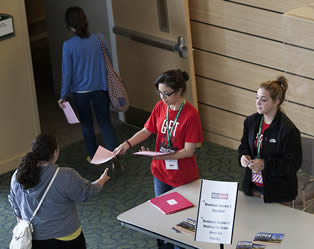 During your course you will learn the fundamental health care skills necessary on the job as a nursing assistant. To prepare you for dealing with patients you’ll receive theoretical instruction about common procedures and clinical hands-on practice. The skills training will include exercises performing: range of motion exercises, measuring & recoding patients vital signs, assisting with dressing/toileting/feeding, infection control methods, safety procedures, observation skills, and catheter care.
During your course you will learn the fundamental health care skills necessary on the job as a nursing assistant. To prepare you for dealing with patients you’ll receive theoretical instruction about common procedures and clinical hands-on practice. The skills training will include exercises performing: range of motion exercises, measuring & recoding patients vital signs, assisting with dressing/toileting/feeding, infection control methods, safety procedures, observation skills, and catheter care. In the training you will get classroom instruction and clinical practice using nurse aide tasks. The course is designed to give you theoretical knowledge of health care procedures and hands-on experience so you are ready for the job. Once you are finished with the class you will want to take the license exams.
In the training you will get classroom instruction and clinical practice using nurse aide tasks. The course is designed to give you theoretical knowledge of health care procedures and hands-on experience so you are ready for the job. Once you are finished with the class you will want to take the license exams.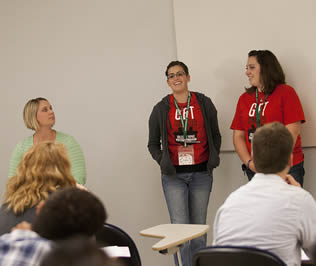 Classes will provide you with classroom coursework and theoretical instruction into common nursing related procedures and provide hands-on experience working in a medical setting. During your skills training you will learn how to help patients with the following: range of motion exercises, transporting, toileting, bathing, feeding, infection control, communication, catheter care, housekeeping, and taking vital signs.
Classes will provide you with classroom coursework and theoretical instruction into common nursing related procedures and provide hands-on experience working in a medical setting. During your skills training you will learn how to help patients with the following: range of motion exercises, transporting, toileting, bathing, feeding, infection control, communication, catheter care, housekeeping, and taking vital signs.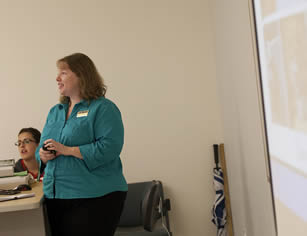 After you complete training your school will likely be able to setup a date for you to take the competency examinations. You can also call the Nurse Aide Competency Evaluation Services from their phone numbers at 1-800-444-5178 or local at (512) 467-0615 to find a test facility. When you take the test you must answer 70 multiple choice problems as well as demonstrate five skills that are picked at random. Each test can be attempted three times. Those who manage to pass in three attempts become listed on the nurse aide registry and are deemed certified for 24 months.
After you complete training your school will likely be able to setup a date for you to take the competency examinations. You can also call the Nurse Aide Competency Evaluation Services from their phone numbers at 1-800-444-5178 or local at (512) 467-0615 to find a test facility. When you take the test you must answer 70 multiple choice problems as well as demonstrate five skills that are picked at random. Each test can be attempted three times. Those who manage to pass in three attempts become listed on the nurse aide registry and are deemed certified for 24 months. After you have finished the school requirement you will want to set a time and place to take the exams to receive your certification. Your school facility can help arrange this or you can call the Nurse Aide Competency Evaluation Services. NACES can be reached toll free at 1-800-444-5178 to help you find a test site. During your competency exam you will need to answer a multiple choice part and complete a physical skills demonstration. You must pass both portions within three tries in order to become actively listed as a registered nurse aide and capable of working long term in health centers.
After you have finished the school requirement you will want to set a time and place to take the exams to receive your certification. Your school facility can help arrange this or you can call the Nurse Aide Competency Evaluation Services. NACES can be reached toll free at 1-800-444-5178 to help you find a test site. During your competency exam you will need to answer a multiple choice part and complete a physical skills demonstration. You must pass both portions within three tries in order to become actively listed as a registered nurse aide and capable of working long term in health centers.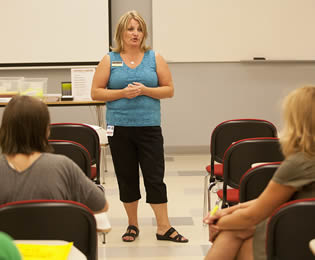 The job of a CNA is to primarily provide basic care to patients and residents of health care facilities under the general guidance of a registered nurse. During your class instruction you will learn the fundamental skills used on the job. Some of the tasks you will be taught are: patients rights, psychosocial needs, communication, safety practices, transporting residents, observation practices, nourishment/feeding, recording vital signs, range of motion exercises, toileting, catheter care, and housekeeping.
The job of a CNA is to primarily provide basic care to patients and residents of health care facilities under the general guidance of a registered nurse. During your class instruction you will learn the fundamental skills used on the job. Some of the tasks you will be taught are: patients rights, psychosocial needs, communication, safety practices, transporting residents, observation practices, nourishment/feeding, recording vital signs, range of motion exercises, toileting, catheter care, and housekeeping. While you are enrolled you will get a variety of skills training in both the classroom and actual clinical environment. The curriculum is broken down into a minimum of 51 hours of coursework/lectures, and 24 hours of clinical practice. The tasks you will work on learning include: Heimlich maneuver, CPR, infection control, transporting patients, range of motion exercises, catheter care, communication, psychosocial needs, housekeeping, toileting, measuring and recording vital signs, nourishment, patients rights, observation skills,safety procedures & practices, and postmortem care. Students who are enrolled in a nursing facility program can work there under the direct supervision of a registered nurse for up to four months before needing certification.
While you are enrolled you will get a variety of skills training in both the classroom and actual clinical environment. The curriculum is broken down into a minimum of 51 hours of coursework/lectures, and 24 hours of clinical practice. The tasks you will work on learning include: Heimlich maneuver, CPR, infection control, transporting patients, range of motion exercises, catheter care, communication, psychosocial needs, housekeeping, toileting, measuring and recording vital signs, nourishment, patients rights, observation skills,safety procedures & practices, and postmortem care. Students who are enrolled in a nursing facility program can work there under the direct supervision of a registered nurse for up to four months before needing certification.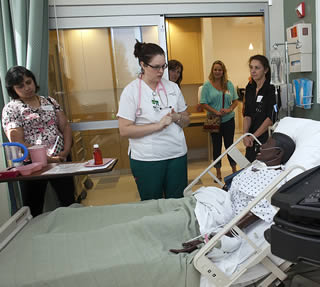 You can apply for the exams if you have completed training from a school and have passed both the federal and the state background check. Normally your training facility can set up a date for you to take the exams. You can also contact the Nurse Aide Competency Evaluation Services locally at (512) 467-0615 or at 1-800-444-5178 to find a testing location.
You can apply for the exams if you have completed training from a school and have passed both the federal and the state background check. Normally your training facility can set up a date for you to take the exams. You can also contact the Nurse Aide Competency Evaluation Services locally at (512) 467-0615 or at 1-800-444-5178 to find a testing location.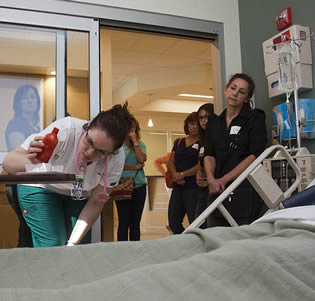 Once you have completed the class requirement you will want to schedule a date to take the license exams. You can contact (NACES) or the Nurse Aide Competency Evaluation Services to find the nearest testing location at 1-800-444-5178 or (512) 467-0615 to get the latest details. The test itself has two parts a skills demonstration exam and a 70 question multiple choice test. You have three chances to pass both portions before you need to retake your class training. Those who pass become certified nurse aides for a 24 month period.
Once you have completed the class requirement you will want to schedule a date to take the license exams. You can contact (NACES) or the Nurse Aide Competency Evaluation Services to find the nearest testing location at 1-800-444-5178 or (512) 467-0615 to get the latest details. The test itself has two parts a skills demonstration exam and a 70 question multiple choice test. You have three chances to pass both portions before you need to retake your class training. Those who pass become certified nurse aides for a 24 month period.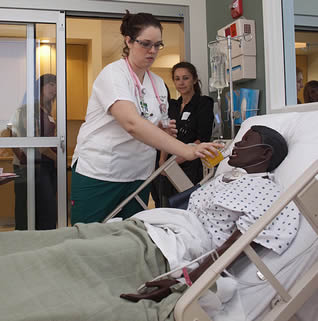 Once you finish the class program, you can then try to apply for the license exams. The exam is split into two different portions which are a written and skills test. The skills test will challenge you to demonstrate 5 nursing aide skills chosen randomly in a medical setting. The written part is a multiple choice test with 70 procedural problems. To find a location to take the test you can contact NACES at 1-800-444-5178 or (512) 467-0615.
Once you finish the class program, you can then try to apply for the license exams. The exam is split into two different portions which are a written and skills test. The skills test will challenge you to demonstrate 5 nursing aide skills chosen randomly in a medical setting. The written part is a multiple choice test with 70 procedural problems. To find a location to take the test you can contact NACES at 1-800-444-5178 or (512) 467-0615.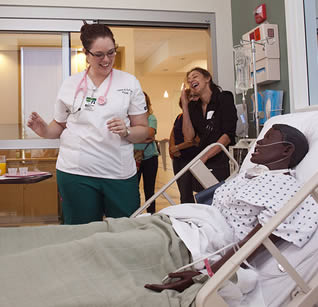 For the clinical part you will receive at the very minimum 24 hours of hands-on skills training. During your classroom part you will receive no less than 51 hours of theoretical instruction and lectures. The class is structured to provide you with the skills and experience to pass the license exams and be proficient while on the job.
For the clinical part you will receive at the very minimum 24 hours of hands-on skills training. During your classroom part you will receive no less than 51 hours of theoretical instruction and lectures. The class is structured to provide you with the skills and experience to pass the license exams and be proficient while on the job.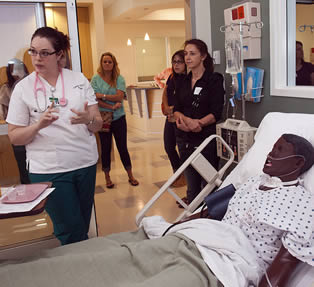 While employed you will be tasked with supporting nurses in a variety of day to day activities. Some of the skills and tasks you must perform are: communicating with residents & their families, facilitating maximum resident independence, helping with toileting, bathing, & dressing, measuring respiration, pulse & blood pressure, performing range of motion exercises, transporting, accurate reporting skills, function as part of a health care team, knowledge of medical terminology & safety procedures, and promote patients rights.
While employed you will be tasked with supporting nurses in a variety of day to day activities. Some of the skills and tasks you must perform are: communicating with residents & their families, facilitating maximum resident independence, helping with toileting, bathing, & dressing, measuring respiration, pulse & blood pressure, performing range of motion exercises, transporting, accurate reporting skills, function as part of a health care team, knowledge of medical terminology & safety procedures, and promote patients rights.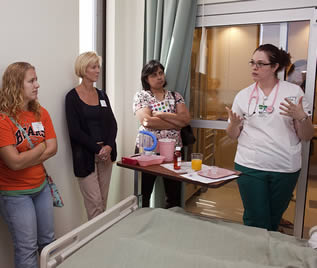 While you are involved in the class you will receive two types of instruction, classroom lectures/coursework, and clinical skills training. during the classroom instruction you will learn a variety of general theoretical health care procedures training. For the clinical instruction you will get hands-on practice performing many of the common activities nurse aides use while on the job. Some of the tasks you will practice are: transporting patients, feeding, bathing, toileting, range of motion exercises, taking vitals (pulse, blood pressure, respiration), infection control procedures, catheter care, and housekeeping exercises.
While you are involved in the class you will receive two types of instruction, classroom lectures/coursework, and clinical skills training. during the classroom instruction you will learn a variety of general theoretical health care procedures training. For the clinical instruction you will get hands-on practice performing many of the common activities nurse aides use while on the job. Some of the tasks you will practice are: transporting patients, feeding, bathing, toileting, range of motion exercises, taking vitals (pulse, blood pressure, respiration), infection control procedures, catheter care, and housekeeping exercises.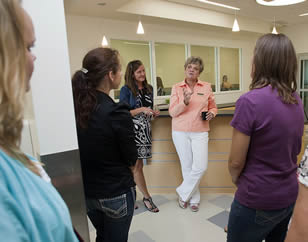 To get started you should enroll in a course licensed by the Texas Department of Aging and Disability Services. Once enrolled you will get hands-on skills practice as well as classroom instruction on common health care procedures and protocols. Your skills training is coordinated by an experienced registered nurse and will be provided in a health care setting.
To get started you should enroll in a course licensed by the Texas Department of Aging and Disability Services. Once enrolled you will get hands-on skills practice as well as classroom instruction on common health care procedures and protocols. Your skills training is coordinated by an experienced registered nurse and will be provided in a health care setting.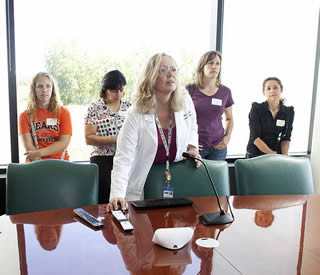 Before enrolling in a nurse aide course you will want to make sure it has been approved and licensed by the Texas Department of Aging and Disability Services. Once enrolled you will receive class instruction and practical skills training in a health care setting. After you finish instruction you will want to schedule a time to take the competency evaluation exams which include a written test and a demonstration test. To find a testing location you can contact the Nurse Aide Competency Evaluation Services at 1-800-444-5178.
Before enrolling in a nurse aide course you will want to make sure it has been approved and licensed by the Texas Department of Aging and Disability Services. Once enrolled you will receive class instruction and practical skills training in a health care setting. After you finish instruction you will want to schedule a time to take the competency evaluation exams which include a written test and a demonstration test. To find a testing location you can contact the Nurse Aide Competency Evaluation Services at 1-800-444-5178.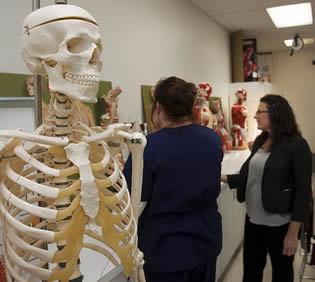 In order to get started you will want to enroll in an instructional program that provides the proper curriculum and ours of classes. Currently course need to be licensed by the Texas Department of Aging and Disability Services. You can contact them to make sure a program is approved by calling their phone number at 512-438-5495. When you finally start the class you will notice it includes both regular theoretical health care procedure instruction and hands-on skill lessons to help you practice using the fundamental tasks necessary on the job. You will need this information when you take the competency exams to get your certification.
In order to get started you will want to enroll in an instructional program that provides the proper curriculum and ours of classes. Currently course need to be licensed by the Texas Department of Aging and Disability Services. You can contact them to make sure a program is approved by calling their phone number at 512-438-5495. When you finally start the class you will notice it includes both regular theoretical health care procedure instruction and hands-on skill lessons to help you practice using the fundamental tasks necessary on the job. You will need this information when you take the competency exams to get your certification.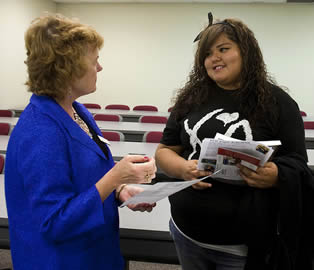 During your instruction you will get classroom instruction that provides procedural knowledge of common nursing aide related tasks. In addition you will get skills training to provide you with hands-on practice with frequently used tasks. Upon completion of your class they can schedule a date for you to take the competency exams to get your certification. You can also contact NACES at (512)467-0615 or at 1-800-444-5178 to find a testing facility nearby.
During your instruction you will get classroom instruction that provides procedural knowledge of common nursing aide related tasks. In addition you will get skills training to provide you with hands-on practice with frequently used tasks. Upon completion of your class they can schedule a date for you to take the competency exams to get your certification. You can also contact NACES at (512)467-0615 or at 1-800-444-5178 to find a testing facility nearby.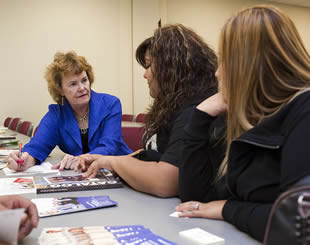 Before enrolling you must check that the program you are considering is licensed by the Texas Department of Aging and Disability Services. Approved classes will meet state and federal standards and make you eligible to take the competency exams to get your certification. When you join a program you will receive two types of instruction, these are classroom coursework/lectures, and hands-on skills practice.
Before enrolling you must check that the program you are considering is licensed by the Texas Department of Aging and Disability Services. Approved classes will meet state and federal standards and make you eligible to take the competency exams to get your certification. When you join a program you will receive two types of instruction, these are classroom coursework/lectures, and hands-on skills practice.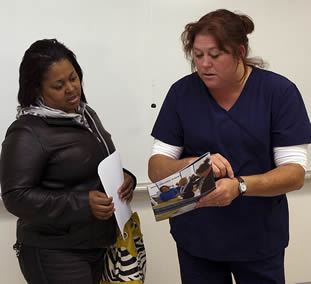 The class curriculum consists of training in a clinical setting that provides hands-on experience and classroom theoretical coursework. During your class you will get to practice many of the tasks you will commonly perform while on the job. Some of the skills you will learn include: transporting residents, measuring vital signs (pulse, respiration, & blood pressure, feeding, bathing, housekeeping, catheter care, toileting, range of motion exercises, communication, postmortem care, and safety procedures.
The class curriculum consists of training in a clinical setting that provides hands-on experience and classroom theoretical coursework. During your class you will get to practice many of the tasks you will commonly perform while on the job. Some of the skills you will learn include: transporting residents, measuring vital signs (pulse, respiration, & blood pressure, feeding, bathing, housekeeping, catheter care, toileting, range of motion exercises, communication, postmortem care, and safety procedures.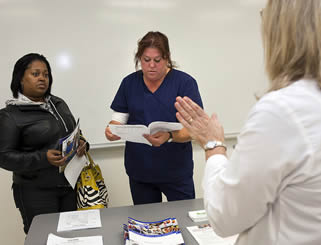 When you are enrolled in your program you will receive training in the class as well as clinical practice performing popular nursing assistant tasks. The minimum amount of instructional hours required by the state of Texas for nurse aides in currently set at 75 hours. This is broken down into 24 hours of clinical skills practice and 51 hours of coursework and lectures.
When you are enrolled in your program you will receive training in the class as well as clinical practice performing popular nursing assistant tasks. The minimum amount of instructional hours required by the state of Texas for nurse aides in currently set at 75 hours. This is broken down into 24 hours of clinical skills practice and 51 hours of coursework and lectures.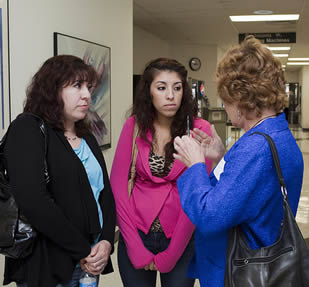 Before enrolling in a course you will want to make sure it is accepted and licensed for instruction by the Department of Aging and Disability Services. Classes are required in this state to offer 24 hours of clinical experience practice and 51 hours of theoretical course instruction. During the clinical part of the course you will receive hands-on practice using equipment and performing tasks used on the job of a nurse aide.
Before enrolling in a course you will want to make sure it is accepted and licensed for instruction by the Department of Aging and Disability Services. Classes are required in this state to offer 24 hours of clinical experience practice and 51 hours of theoretical course instruction. During the clinical part of the course you will receive hands-on practice using equipment and performing tasks used on the job of a nurse aide.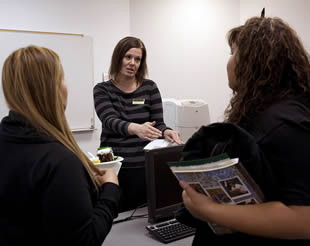 The training program is required to be approved by the Texas Department of Aging and Disability Services (DADS) so that it meets state standards for instruction. The class will teach fundamental nursing related skills in a medical environment giving you actual hands-on practice using common tasks and procedures. In addition you will receive theoretical health care instruction that covers state and federally mandated information.
The training program is required to be approved by the Texas Department of Aging and Disability Services (DADS) so that it meets state standards for instruction. The class will teach fundamental nursing related skills in a medical environment giving you actual hands-on practice using common tasks and procedures. In addition you will receive theoretical health care instruction that covers state and federally mandated information. Before you can become certified you will need to pass a certified course program, submit to a thorough background screening, submit documentation, and pass the registry competency exams. The primary goal of class instruction is to prepare nurse aides for the job and to help them pass the exam. You will receive a variety of theoretical, and skills instruction in a classroom and clinical environment. This will help you learn the knowledge and abilities necessary for the provision of residents of long term care facilities.
Before you can become certified you will need to pass a certified course program, submit to a thorough background screening, submit documentation, and pass the registry competency exams. The primary goal of class instruction is to prepare nurse aides for the job and to help them pass the exam. You will receive a variety of theoretical, and skills instruction in a classroom and clinical environment. This will help you learn the knowledge and abilities necessary for the provision of residents of long term care facilities.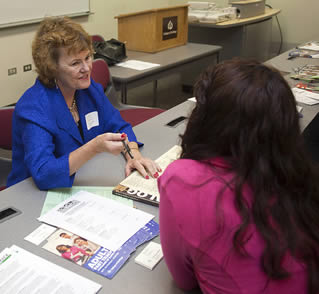 During your clinical instruction you will practice performing tasks in a medical setting similar to that found in a nursing home. The clinical portion is coordinated by a registered nurse. For the class instruction you will receive theoretical lectures, and coursework into the fundamentals of being a nurse aide.
During your clinical instruction you will practice performing tasks in a medical setting similar to that found in a nursing home. The clinical portion is coordinated by a registered nurse. For the class instruction you will receive theoretical lectures, and coursework into the fundamentals of being a nurse aide.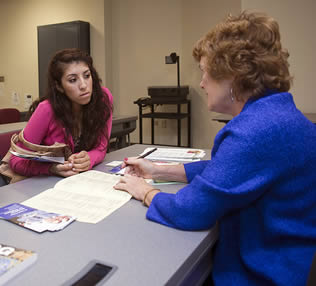 While in your clinical training you will learn many of the tasks used by nursing assistants throughout their workday. Some of the skills you will be taught are: transporting patients, nourishment, catheter care, toileting, dressing, housekeeping, range of motion exercises, recording vital signs (respiration, pulse, blood pressure,) infection control, communication, and safety procedures.
While in your clinical training you will learn many of the tasks used by nursing assistants throughout their workday. Some of the skills you will be taught are: transporting patients, nourishment, catheter care, toileting, dressing, housekeeping, range of motion exercises, recording vital signs (respiration, pulse, blood pressure,) infection control, communication, and safety procedures. After you complete your course, you can then apply for the state exams. The license examination will be made up of two parts, a written and skills test. You must pass both parts to get your certification and are allowed three attempts each. If you need to locate a testing facility for the competency exams you can contact the Nurse Aide Competency Evaluation Services at 1-800-444-5178 or (512) 467-0615. Those who pass both portions of the exam are placed o the nursing assistant registry and given an active status for 24 months. You can check your status in the registry at any time by calling 1-800-452-3934.
After you complete your course, you can then apply for the state exams. The license examination will be made up of two parts, a written and skills test. You must pass both parts to get your certification and are allowed three attempts each. If you need to locate a testing facility for the competency exams you can contact the Nurse Aide Competency Evaluation Services at 1-800-444-5178 or (512) 467-0615. Those who pass both portions of the exam are placed o the nursing assistant registry and given an active status for 24 months. You can check your status in the registry at any time by calling 1-800-452-3934.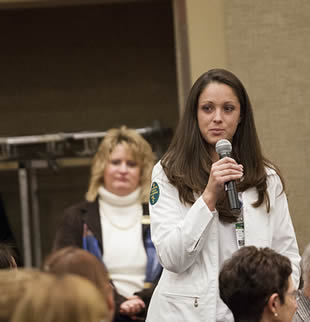 When you are enrolled you will receive a variety of different skills and procedural training that includes both classroom instruction, and skills practice in a clinical environment. During your clinical skills portion you will utilize common tasks and practice them in a setting similar to that found in a health care facility.
When you are enrolled you will receive a variety of different skills and procedural training that includes both classroom instruction, and skills practice in a clinical environment. During your clinical skills portion you will utilize common tasks and practice them in a setting similar to that found in a health care facility.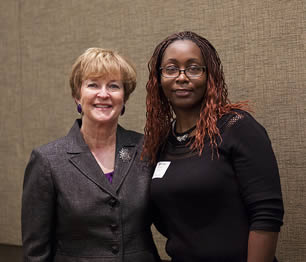 When you have completed your school training and are ready to take the license exams your facility will usually set a date for you. However, if you need to find a testing location nearby you can contact (NACES) the Nurse Aide Competency Evaluation Services at 1-800-444-5178. When you take the exam you will find it has two parts, a written test and a skills exam. Passing both portions within three tries is recquired to be placed on the nurse aide registry. Those who do not pass are required to retake the training portion. Once certified the nurse aide is eligible to work as a CNA for 24 months before renewal is necessary. You can check your registry status in Texas at anytime by calling 1-800-452-3934.
When you have completed your school training and are ready to take the license exams your facility will usually set a date for you. However, if you need to find a testing location nearby you can contact (NACES) the Nurse Aide Competency Evaluation Services at 1-800-444-5178. When you take the exam you will find it has two parts, a written test and a skills exam. Passing both portions within three tries is recquired to be placed on the nurse aide registry. Those who do not pass are required to retake the training portion. Once certified the nurse aide is eligible to work as a CNA for 24 months before renewal is necessary. You can check your registry status in Texas at anytime by calling 1-800-452-3934.